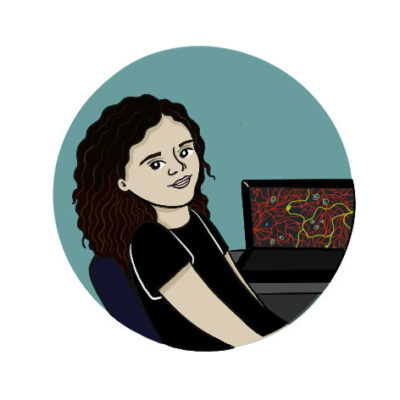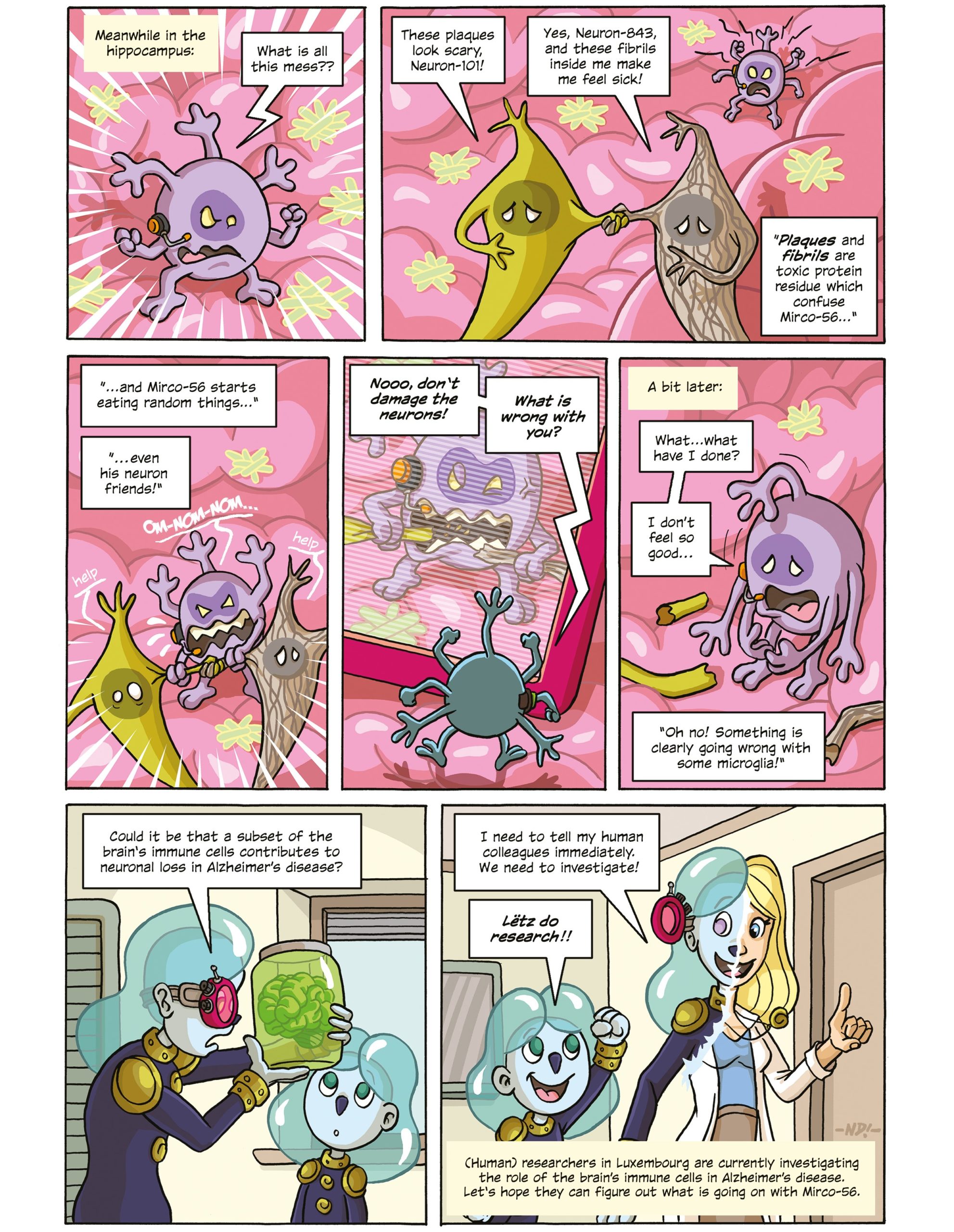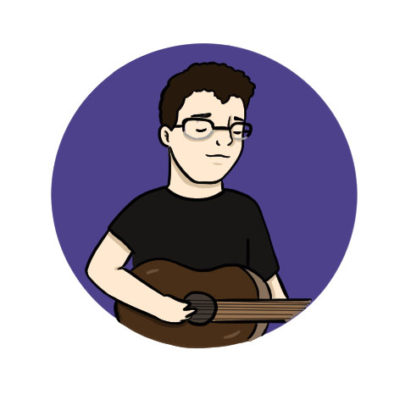Comics
Microglia: Guardians of the Brain?
ARTIST
ANDY GENEN
Ever since he was a kid, Andy Genen (born in 1979) has always loved all kinds of comics. After finishing his studies at the Institut St-Luc in Brussels, where he actually studied “creating comics”, he started working as a freelance illustrator / comic book artist and has since illustrated numerous very varied projects. His best known comic work includes “De leschte Ritter” trilogy, which he created with Lucien Czuga, and several collaborations with John Rech (“Dream Catcher” and “Alex & Tun”). “De Roude Puma” and his latest series “Tow & Tank” are among his solo works.
Artistic Focus
more on the lighter, cartoony side
Contributions to LUX:plorations:
Inside the Solar Cell
Microglia: Guardians of the Brain?
Why did you participate in LUX:plorations?
“Always looking for new challenges, I’m happy each time I’m able to tackle projects coming from different directions in general. As I’m convinced of the didactic power of comics when it comes to explain all kinds of different subjects in an understandable manner, doing comics talking about scientific subjects is a no-brainer for me.”
What did you like most about LUX:plorations?
“First of all, I love it to work on new subjects I didn’t know much (or anything at all) about before. It keeps me involved right from the start as I have to begin by getting « into » the subject first, meaning that I work on every subject starting from zero AND I’m learning new things myself over the course of time. This helps me to keep things fresh for me.
But what I loved MOST about this particular project was the actual team work ! Before we started, I had no idea what to expect. Creating comics is quite a unique and special craft, and working with people that are new to the field may not be that easy, for both sides. But the 2 teams I worked with did SUCH an amazing job, from the beginning till the end ! They had really neat ideas and a clear vision of what story they wanted to tell. Furthermore, they really managed to teach me all the scientific facts and background that I needed and were very reactive when it came to provide me with any kind of additional info or material. On the other hand, they trusted me to bring my vision to their stories and always open to my ideas. They were always enthusiastic and involved and always brought some cool ideas and input to the table in order to improve the stories even more.”
What was the biggest challenge for you?
“One of the biggest challenges when it comes to educational comics is to find the right balance between storytelling and scientific content. If you rely TOO MUCH on the story itself, you don’t get people to learn much about the actual subject. But if you neglect the story and ONLY talk science, you end up with a dull collection of factual information without any coherent and interesting drive behind. So you always have to be aware of that fine line and try to juggle as best as you can in order to find the right balance between these two poles.”
SCIENTISTS/AUTHORS

SHUBHRA ACHARYA
“I am currently working towards delineating the role of long noncoding RNAs in Parkinson’s disease (PD). The project aims to find a novel biomarker that will help in better diagnosis and treatment of PD.”
Research Focus
Parkinson’s disease
Affiliation
CardioVascular Research Unit, Department of Population Health
Luxembourg Institute of Health (LIH)
Contributions to LUX:plorations:
Microglia: Guardians of the Brain?
Why did you participate in LUX:plorations?
“Communication is very important aspect of research, especially in terms of educating young developing minds. LUX:plorations was a very good initiative to learn how to communicate our research findings, not only to students but also to people that are from different backgrounds.”
What did you like most about LUX:plorations?
“The lectures with assignments and group work even at the time of pandemic was very well done. I also learnt about different research projects, other than my research field, currently ongoing in Luxembourg.”

ANNA SCHMITT
“I study the neuronal activity of gifted adults when they are exposed to different visual stimuli such as words, symbols, digits, objects and faces. The neuronal activity is naturally produced by the brain. To measure that, I use the electroencephalography (EEG): thanks to electrodes put on the head of my participants, I can analyse the activity of neurons.”
Research Focus
Adult’s giftedness
Affiliation
Department of Behavioural and Cognitive Sciences (DBCS), Institute of Cognitive Science and Assessment (COSA)
University of Luxembourg
Contributions to LUX:plorations:
Inside the Solar Cell
Microglia: Guardians of the Brain?
Why did you participate in LUX:plorations?
“I participated in LUX:plorations due to my interests in communication of science to a large audience.”
What did you like most about LUX:plorations?
“The thing that I liked most was the interdisciplinary. Working with other researchers was interesting and instructive.”
What was the biggest challenge for you?
“The biggest challenge was sometimes to handle with my other research projects. But it was worth the effort.”

SONJA FIXEMER
“I investigate the diversity (in shape and function) of immune cells, called microglia, in post-mortem brain tissue from Alzheimer’s Disease patients. The aim is to identify potentially toxic subgroups which could offer new targets for therapy development.”
Research Focus
Alzheimer’s Disease
Affiliation
Prof. Dr. Alexander Skupin Lab (Integrative Cell Signaling) and Prof. Dr. Michel Mittelbronn Lab (Luxembourg Centre for Neuropathology), Luxembourg Centre for Systems Biomedicine (LCSB)
University of Luxembourg
Contributions to LUX:plorations:
Microglia: Guardians of the Brain?
Why did you participate in LUX:plorations?
“I was so impressed by the first edition of this comic series from last year, which motivated me to show the public that here in Luxembourg we also do research on Alzheimer’s disease and that immune cells which are called microglia might play an important role!”
What did you like most about LUX:plorations?
“LUX:plorations is such a creative way to show complicated research topics to a broad and young audience and I think as researchers we should always make our findings also accessible for non-specialists and try to spark interest in research in the next generation!”
What was the biggest challenge for you?
“The biggest challenge for me in this project was definitely to limit the amount of information we could include in the comic in order to keep it interesting and simple. You want to tell the people everything about your research, but for this we would have needed to create an entire comic book!”

ANOUK EWEN
“I am investigating the role of post-translational modifications in the innate immune system.”
Research Focus
Innate Immunity
Affiliation
Experimental and Molecular Immunology Group, Department of Infection and Immunity
Luxembourg Institute of Health (LIH)
Contributions to LUX:plorations:
Microglia: Guardians of the Brain?
Why did you participate in LUX:plorations?
“I wanted to reach out to the public and communicate my research. Especially now, during the current sanitary crisis, we could observe how important it is to communicate science. And in my opinion, there’s no better way to this than doing it while being creative!”
What did you like most about LUX:plorations?
“I really enjoyed working in an amazing team! It was nice to work together with Luxembourgish comic artists and to combine art/creativity with science.”
What was the biggest challenge for you?
“It was a challenge to explain our topic in a few words only, but still in a comprehensible way.”
MENTOR
JESSICA BURTON
Jessica Burton is a researcher at the Luxembourg Centre for Contemporary and Digital History (C2DH), working on the relationship between European comic transfers in the 1960s within the Popkult60 project. She specialises in comics studies and has previously worked as a comic editor for Titan Comics, on titles such as Doctor Who, before embarking on her PhD. She is a mentor for LUX:plorations, and teaches classes on comics history at the
University.
Research Focus
Comics, History, Cross-cultural Transfers, Popular Culture
Contributions to LUX:plorations:
Becoming an Agent of Change
Chronicles from Platform 6
Inside the Solar Cell
Microglia: Guardians of the Brain?
Why did you participate in LUX:plorations?
“I truly believe in the power of comics to inform and educate, so jumped at the chance to help fellow doctoral candidates learn how to tell their research through comics form.”
What did you like most about LUX:plorations?
“Watching the doctoral candidates work on their ideas and seeing them engage with the artists for an amazing end product.”
What was the biggest challenge for you?
“Finding the balance between suggesting ideas and allowing participants maximum creativity.”
SUPERVISOR
OLIVER GLASSL
Oliver Glassl is an educational management professional with long-term experience in academic teaching and curriculum development. His education includes degrees in speech and language therapy and business administration. His research in the field of neurorehabilitation has given rise to various publications. Currently working for the Doctoral School in Science and Engineering (DSSE) at the University of Luxembourg, he is a member of the DESCOM team.
Work Focus
Educational Management
Contributions to LUX:plorations:
Microglia: Guardians of the Brain?
Chronicles from Platform 6
Why did you participate in LUX:plorations?
“The world gets increasingly complex, also driven by science and research. It is therefore the responsibility of any research institution to make scientific knowledge available for lay audiences in an understandable way.”
What did you like most about LUX:plorations?
“I very much appreciated collaborating simultaneously with scientists and artists. Even though these fields might appear to be rather different on the first glimpse, they converge when it comes to the importance of creativity. Being part of this was a very inspiring experience.”
What was the biggest challenge for you?
“Waiting for the arrival of the boxes with the finished comics.”





